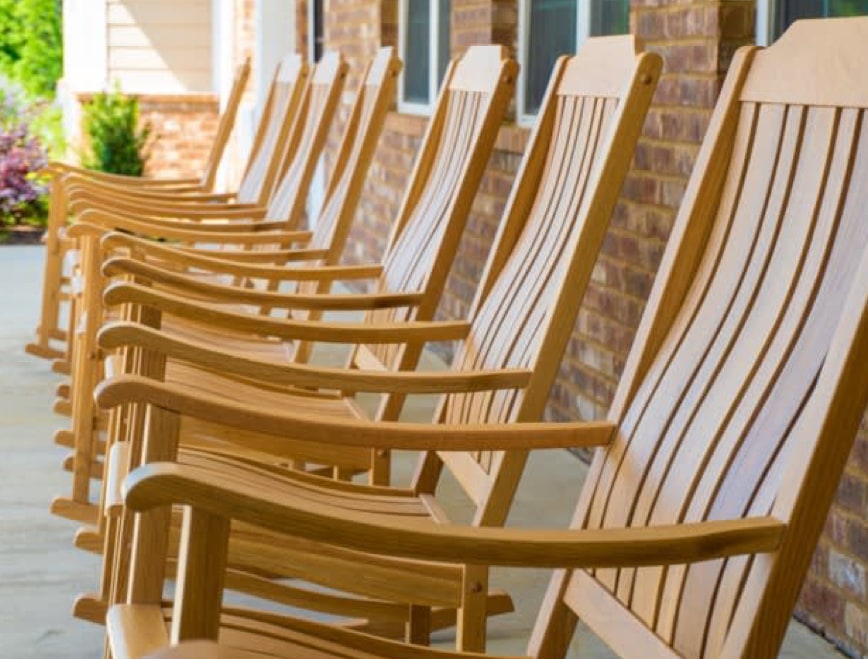As your loved one ages, they may encounter challenges that make living alone harder. Such challenges might include difficulty with daily activities or cognitive concerns like Alzheimer’s or dementia. Whatever the case may be, your loved one deserves the best care and the highest possible quality of life, and this often means considering long-term care.
The 2 main kinds of care are assisted living and memory care—but what, exactly, are the differences between them?
Assisted living is a form of care designed to preserve the independence of older adults who require support with some daily activities. Memory care, in contrast, is a more comprehensive form of care intended for those with cognitive decline due to Alzheimer’s or dementia.
What Is Assisted Living?
Assisted living or personal care communities can meet your aging loved one’s lifestyle needs while also promoting their overall quality of life. These communities offer a supportive residential setting for older adults who need assistance with one or more activities of daily living (ADLs) but retain some mobility and don’t require around-the-clock care.
Residents of personal care communities retain much of their independence while benefiting from various services designed to provide healthy living, socialization, activities, and other support for a senior’s desired lifestyle.
While specific offerings may vary between communities, they usually include snacks and meals, laundry and housekeeping services, grooming, and medication management.
Residents also tend to have their own private living quarters, home maintenance repairs, and an emergency alert system.
Many facilities provide scheduled transportation (for instance, to doctors’ appointments) and offer a range of fun activities and outings that allow residents to socialize and enjoy mental stimulation. This range of activities can vary greatly by community, so it’s important to choose a place whose amenities reflect your loved one’s interests.
What Is Memory Care?
Memory care communities are a more specialized form of care designed for those with cognitive concerns like Alzheimer’s or dementia. Residents of these communities often require more care than personal care communities can provide.
Memory care communities offer specialized support, are focused on safety and security, and employ specially trained staff around the clock for your loved one’s well-being.
Safety can be a concern for those living with dementia, so memory care communities are designed with residents’ security in mind. This often includes layouts designed to minimize confusion and may involve design features such as enclosed outdoor gardens that provide communal spaces while minimizing risks like wandering.
In memory care, daily activities are often aimed at those living with cognitive decline. These activities stimulate cognitive function, promote well-being and relaxation, and may even slow the decline. Examples include music or music therapy, various artistic endeavors, movie nights, gardening, and more.
Memory care communities are often the best choice for those with moderate to severe cognitive decline who are no longer able to live on their own.

When to Consider Each Type of Care
There are signs you can look for to help you decide whether your loved one should consider transitioning to long-term care. Let’s consider each type of care in turn.
Should My Loved One Consider Assisted Living?
Your loved one may wish to consider transitioning to personal care if they:
- Struggle with one or more of the activities of daily living (dressing, bathing, etc.)
- Need opportunities for socialization
- Can’t keep up with home maintenance
- Can no longer live independently
Other, broader considerations might also include:
- Whether you and your family can provide the care your loved one needs without compromising your own well-being
- Whether your loved one’s physician has suggested personal care
Keep in mind that transitioning to long-term care is a big decision. Talk to your loved one about their needs and interests, and try to choose a community where they will benefit from the amenities, activities, and socialization available.
Should My Loved One Consider Memory Care?
When considering memory care, the main factor is whether or not your loved one is experiencing cognitive decline.
Some specific signs that it may be time for memory care include:
- Struggles with activities of daily living (e.g., your loved one forgets to eat or drink)
- Mood and behavioral changes
- Changes in personality
- Your loved one is beginning to wander
- Your loved one can’t maintain their health (e.g., they forget their medication), or their living conditions are becoming unsafe
Doctors are trained to identify signs of dementia, so if you have any concerns, make an appointment with your loved one’s doctor and get a professional medical opinion.
Choose the Most Appropriate Care
Choosing a form of care that maintains your loved one’s quality of life is important.
While personal care is aimed at older adults who may struggle with daily living activities, memory care is designed for those with cognitive decline. Each care community is designed with its residents in mind and offers amenities specific to its residents’ unique needs.
At Harpeth at Harmony Hills we’re committed to helping you find a place where your loved one can thrive. Contact us today to discuss our personal care and memory care communities.

















